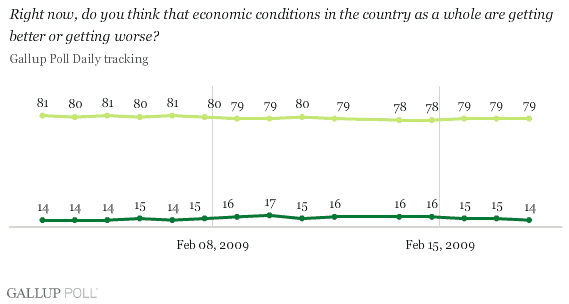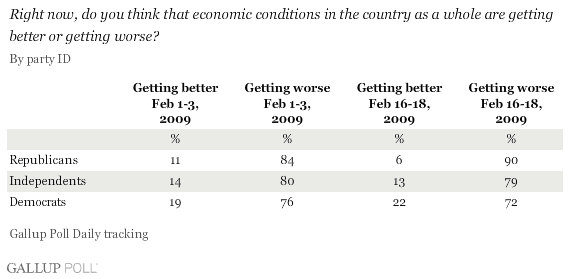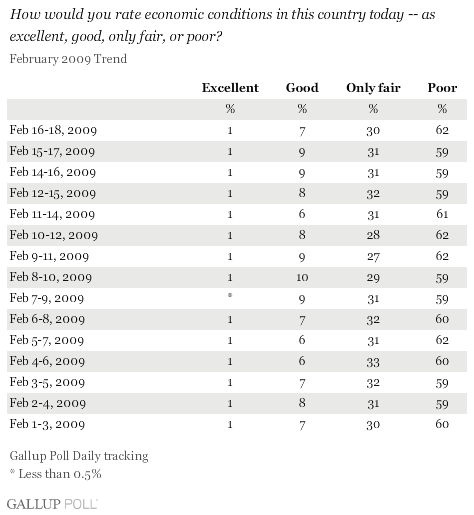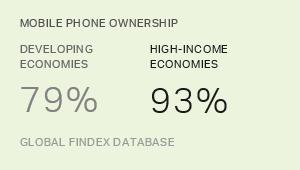PRINCETON, NJ -- Gallup Poll Daily tracking shows no sign yet that the new $787 billion stimulus plan passed by Congress and signed into law this week by President Obama has made any change in the way Americans view the U.S. economy; 79% continue to say the economy is getting worse, almost exactly the same percentage as that seen in the first days of the month and as the average for February so far.

The impact of the stimulus bill on the "real" economy -- in terms of jobs and increased consumer spending -- won't be known for some time. Indeed, critics of the bill say it may be years before the massive increase in government spending begins to be reflected in such hard indicators. Still, it is a reasonable hypothesis that the stimulus bill could have a more immediate impact on consumer psychology, with Americans' views of the economy in theory perking up in anticipation of the bill's effects.
Current Gallup tracking data, however, do not support this hypothesis. Americans appear to be just as negative about the economy now as they were earlier in February, before the bill's passage became a certainty. The average values for Gallup's direction-of-the-economy question between Feb. 1 and Feb. 18 are 15% getting better and 80% getting worse. The values for the first three days of February were 14% better and 81% worse, and the values for Feb. 16-18 are 14% getting better and 79% getting worse. All of these figures represent a very stable pattern throughout the month.
An analysis of trends in the "getting better"/"getting worse" indicator by party show a slight tendency for Democrats to have become more positive about the economy since the beginning of the month, while Republicans have become more negative. These changes are not great, however, and essentially balance themselves out, producing the result of little change in the overall numbers between the two time periods.

Perhaps not unexpectedly, there has been little change in the last few weeks in the way Americans rate the current economy.

Although there have been some fluctuations, the basic distribution of attitudes across these categories appears to be very similar in early February to what it is today, with roughly 10% describing current conditions as "excellent" or "good" and about 60% rating conditions "poor."
Bottom Line
The fact that Congress was going to agree on and pass a stimulus bill has been evident for a number of days, and Obama's signing of that bill made it official this week. So far, however, there is no sign in Gallup's continuous tracking of Americans' views of the economy that the bill has made any difference. Attitudes now are no different from what they were at the beginning of the month.
It may take more time for consumers to adjust to the potentially positive impact of the bill, of course, and Gallup's daily monitoring of consumer confidence may reflect this in the days to come. For the moment, however, it's business as usual as far as the public's economic mood is concerned, and that business remains very negative.
Survey Methods
Results are based on telephone interviews with 1,501 national adults, aged 18 and older, conducted Feb. 16-18, 2009, as part of Gallup Poll Daily tracking. For results based on the total sample of national adults, one can say with 95% confidence that the maximum margin of sampling error is ±3 percentage points.
Interviews are conducted with respondents on land-line telephones (for respondents with a land-line telephone) and cellular phones (for respondents who are cell-phone only).
In addition to sampling error, question wording and practical difficulties in conducting surveys can introduce error or bias into the findings of public opinion polls.
